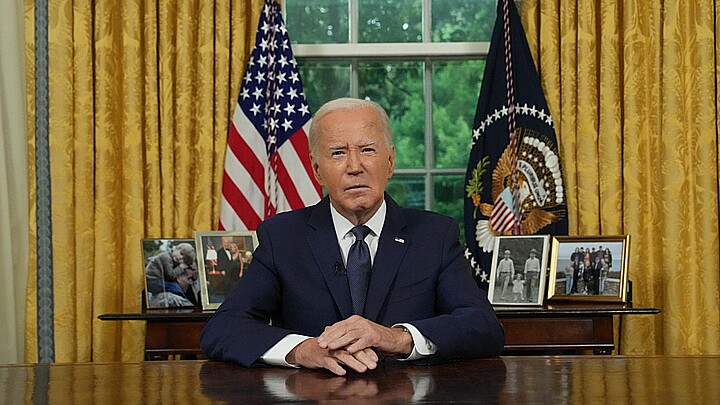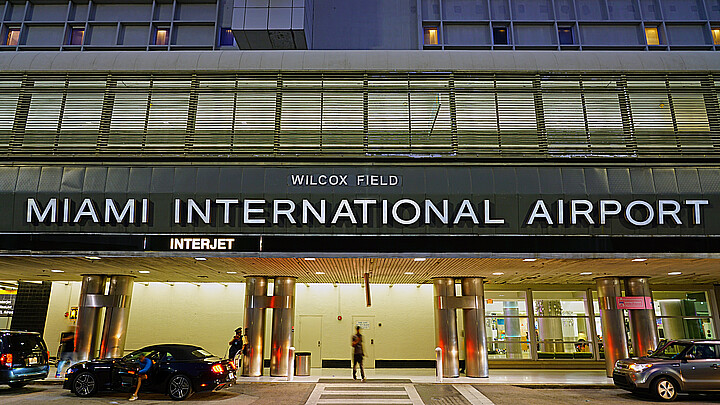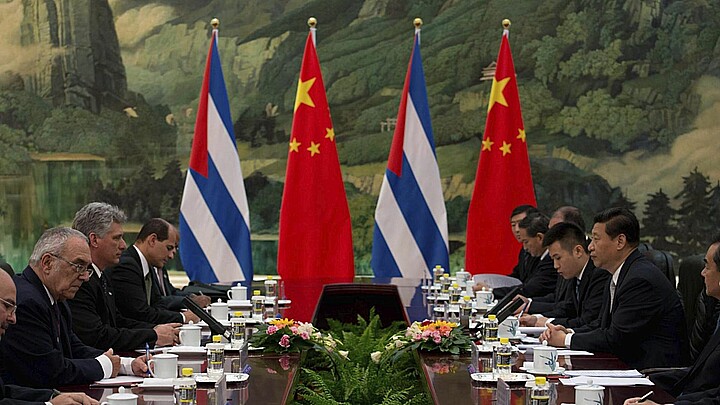Politics
Sens. Rubio and Scott: U.S. must maintain policy outlawing business with Cuban military, terrorist designation
The senators argued that “delisting companies from the Restricted Entity List or discarding the list entirely amid the Cuban military and intelligence agencies seeking reprisals against Cubans will be seen as rewarding the regime for oppression
December 20, 2022 2:02pm
Updated: December 20, 2022 2:46pm
Sens. Marco Rubio, Rick Scott and James Risch wrote to President Joe Biden on Tuesday, calling upon the administration not to rescind U.S. policies outlawing business dealings with the Cuban military and the regime’s designation as a state sponsor of terrorism. The letter, which was exclusively obtained by ADN highlighted many of Cuba's human rights abuses and terrorist acts.
On January 18, 2018, the U.S. barred Americans from engaging in direct financial transactions with entities and sub-entities linked to the regime’s military, intelligence and security services.
The senators argued that “delisting companies from the Restricted Entity List, or discarding the list entirely, even as the Cuban military and intelligence agencies continue to seek bloody reprisals against the Cubans that took part in the unprecedented nationwide July 11, 2021 demonstrations, will be seen as rewarding the regime for its oppression of peaceful demonstrators, including minors, and demoralize those who continue to fight for freedom on the island.”
The letter also said: “At the start of your presidency, your administration announced a foreign policy “that is centered on the defense of democracy and the protection of human rights.” On Dec. 9, 2022, you pledged to “continue holding accountable Cuban officials responsible for violence against peaceful protests.” The American and Cuban people yearning for the respect of human rights on the island expect you to live up to these promises.”’
Rubio, who serves as the ranking member of the Senate Intelligence Committee also said the policies are “important tools the United States uses to hold the communist regime in Cuba accountable for human rights abuses and its sponsorship of international terrorism,” and accused the Castro/Díaz-Canel regime of continuing to destabilize its neighboring countries.
Their argument are rooted in the both the Cuban Democracy Act of 1992 and the Cuban Liberty and Democracy Solidarity (LIBERTAD) Act of 1996, which prohibits the lifting of economic restrictions on Cuba only after the regime “holds free and fair elections, shows respect for basic civil liberties and human rights, releases all political prisoners and establishes a free market economic system.”
Although Congress holds the power to amend the Act’s objectives, the president has “limited waiver authority” for the purposes of supporting a Cuban transition to democracy.
Rubio, whose parents fled Cuba amid the Castro revolution, blasted the past acts of the Obama administration, arguing that the so-called Cuba Thaw, which warmed relations with the regime under the rule of Fidel Castro’s brother, Raul, only resulted in harsher, more repressive action on the island with little to no concessions being made toward democracy or human rights.
The monthly average for Cuban arbitrary detentions dramatically increased from 172 in 2010 before the start of those policies to 827 in 2016 as Obama departed the White House, according to the Cuban Commission for Human Rights and National Reconciliation.
The letter said that the Obama administration’s efforts had no apparent impact in a regime change of policy to to “respect freedom of expression, hold free and fair elections, or undo its egregious forced labor programs for medical professionals, which merits the Tier 3 status per the U.S. Department of State Trafficking in Persons report.”
Cuba’s on-island activities were not the only concern on the senator’s list. The senators expressed concern for Havana’s role in sponsoring terrorist attacks on U.S. allies throughout the Western Hemisphere. According to the senator’s Dec. 20 letter, the Castro/Díaz-Canel “allows the National Liberation Army (ELN) Revolutionary Armed Forces of Colombia (FARC) dissidents, organizations designated as Foreign Terrorist Organizations (FTOs) by the United States, to use the island to plan terrorist attacks in Colombia.”
To evidence their claims, they cited significant events in Colombia last week in which the country’s Human Rights ombudsman, Carlos Camargo, said this past year resulted 199 killings of human rights defenders and other social leaders.
That number is the highest since 2016, according to the Colombian government, which also says most of the killings are not coincidentally in parts of the country where FARC and ELN rebels grow and traffic illegal narcotics. According to the letter, 66 of the killings, a third of the total happened within the four months since ex-FARC member Gustavo Petro assumed office.
The new Colombian president has since tried to negotiate a truce with the ELN and other criminal enterprises concerning the cocaine trade.
The legislators said the Cuban military dictatorship has served as a “safe haven” to fugitives on the FBI’s Most Wanted Terrorist List.
These individuals include Joanne Chesimard, who murdered New Jersey State Troop Werner Foerster in 1973 and Ishmael LaBeet, who killed eight Americans in the U.S. Virgin Islands in 1972.
“So long as the Cuban regime sponsors designated FTOs, and harbors fugitives responsible for the death of Americans, U.S. policy should continue to recognize the regime as one of the world’s foremost state sponsors of terrorism,” the letter concluded.











